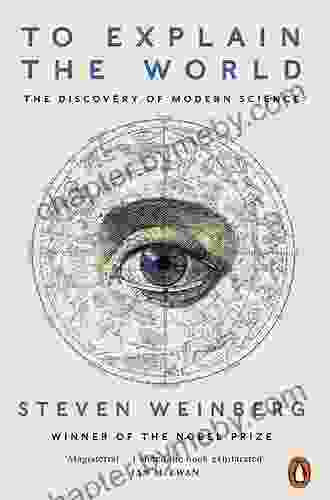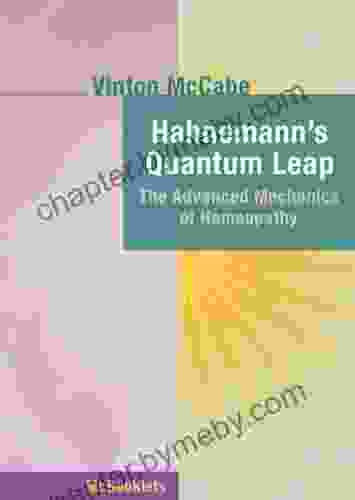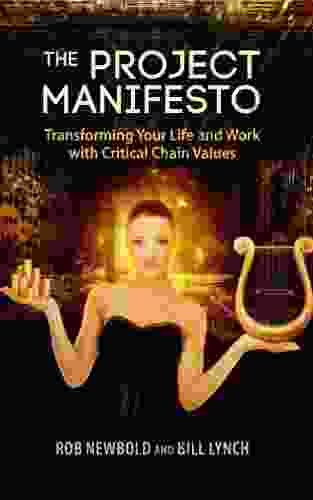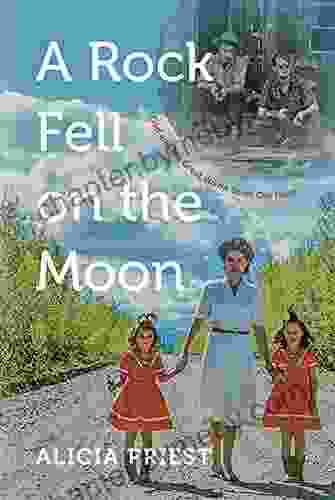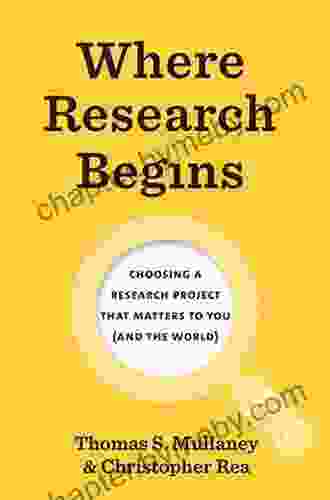The Discovery of Modern Science: A Journey Through Time

The Discovery of Modern Science is a book that explores the history of science, from its earliest beginnings to the present day. It is a fascinating and informative read for anyone who is interested in the history of science or the development of modern thought.
4.2 out of 5
| Language | : | English |
| File size | : | 3220 KB |
| Text-to-Speech | : | Enabled |
| Screen Reader | : | Supported |
| Enhanced typesetting | : | Enabled |
| Word Wise | : | Enabled |
| Print length | : | 437 pages |
The book is divided into three parts. The first part, "The Roots of Modern Science," traces the origins of science back to the ancient Greeks. The second part, "The Scientific Revolution," examines the dramatic changes that took place in science during the 16th and 17th centuries. The third part, "The Rise of Modern Science," discusses the development of science from the 18th century to the present day.
The Discovery of Modern Science is a well-written and engaging book. The author, John Gribbin, is a gifted writer who has a knack for making complex topics accessible to a general audience. The book is also beautifully illustrated, with numerous photographs, diagrams, and charts.
If you are interested in the history of science, then I highly recommend The Discovery of Modern Science. It is a fascinating and informative read that will give you a new appreciation for the development of modern thought.
The Roots of Modern Science
The roots of modern science can be traced back to the ancient Greeks. The Greeks were the first people to develop a systematic approach to understanding the natural world. They believed that the universe was governed by natural laws, and they sought to discover these laws through observation and reason.
Some of the most important Greek scientists include Aristotle, Euclid, and Archimedes. Aristotle was a philosopher who wrote extensively about the natural world. He developed a system of logic that is still used today. Euclid was a mathematician who wrote the Elements, a textbook on geometry that is still used in schools today. Archimedes was a physicist who made important discoveries in the fields of mechanics and hydrostatics.
The Greek scientific tradition was passed down to the Romans, who made some important contributions to science of their own. The most famous Roman scientist was Galen, a physician who wrote extensively about medicine and anatomy.
The Greek and Roman scientific tradition was largely lost during the Middle Ages. However, it was revived during the Renaissance, when scholars began to rediscover the works of the ancient Greeks. The Renaissance was a time of great intellectual ferment, and it saw the birth of many new scientific ideas.
The Scientific Revolution
The Scientific Revolution was a period of dramatic change in science that took place during the 16th and 17th centuries. During this time, scientists made a number of important discoveries that overturned the traditional Aristotelian view of the world.
Some of the most important figures of the Scientific Revolution include Nicolaus Copernicus, Galileo Galilei, and Isaac Newton. Copernicus was an astronomer who proposed that the sun, not the Earth, was the center of the solar system. Galileo was a physicist who made important discoveries in the fields of mechanics and astronomy. Newton was a mathematician and physicist who developed the laws of motion and universal gravitation.
The Scientific Revolution had a profound impact on the development of modern thought. It led to the rise of the scientific method, which is still used today to test new scientific ideas. It also led to the development of new technologies, such as the telescope and the microscope, which allowed scientists to make new discoveries about the natural world.
The Rise of Modern Science
The Scientific Revolution laid the foundation for the rise of modern science. In the 18th century, scientists began to make important discoveries in the fields of chemistry, biology, and geology. In the 19th century, scientists made further discoveries in these fields, and they also began to develop new technologies, such as the steam engine and the electric motor.
The 20th century saw the development of even more new technologies, such as the computer and the nuclear bomb. These technologies have had a profound impact on the modern world, and they continue to shape our lives today.
The Discovery of Modern Science is a fascinating and informative book that tells the story of the development of science from its earliest beginnings to the present day. It is a must-read for anyone who is interested in the history of science or the development of modern thought.
Free Download Your Copy Today!
The Discovery of Modern Science is available now at your local bookstore or online. Free Download your copy today and start your journey through the history of science!
4.2 out of 5
| Language | : | English |
| File size | : | 3220 KB |
| Text-to-Speech | : | Enabled |
| Screen Reader | : | Supported |
| Enhanced typesetting | : | Enabled |
| Word Wise | : | Enabled |
| Print length | : | 437 pages |
Do you want to contribute by writing guest posts on this blog?
Please contact us and send us a resume of previous articles that you have written.
 Book
Book Novel
Novel Page
Page Chapter
Chapter Text
Text Story
Story Genre
Genre Reader
Reader Library
Library Paperback
Paperback E-book
E-book Magazine
Magazine Newspaper
Newspaper Paragraph
Paragraph Sentence
Sentence Bookmark
Bookmark Shelf
Shelf Glossary
Glossary Bibliography
Bibliography Foreword
Foreword Preface
Preface Synopsis
Synopsis Annotation
Annotation Footnote
Footnote Manuscript
Manuscript Scroll
Scroll Codex
Codex Tome
Tome Bestseller
Bestseller Classics
Classics Library card
Library card Narrative
Narrative Biography
Biography Autobiography
Autobiography Memoir
Memoir Reference
Reference Encyclopedia
Encyclopedia Marlene Habib
Marlene Habib Marno Verbeek
Marno Verbeek Poppy Green
Poppy Green Maz Evans
Maz Evans Marvin Mondlin
Marvin Mondlin Sadie Radinsky
Sadie Radinsky Nick Santonastasso
Nick Santonastasso Matt Burns
Matt Burns Michael R Heinlein
Michael R Heinlein Tolli Bryn
Tolli Bryn Michael Brooke
Michael Brooke Richard Brownell
Richard Brownell Robert F Kennedy
Robert F Kennedy Meghan Gottschall
Meghan Gottschall Michelle Fine
Michelle Fine Will Zuniga
Will Zuniga Olivia Kerr
Olivia Kerr Matthew Israel
Matthew Israel Ryan Calais Cameron
Ryan Calais Cameron Richard Connell
Richard Connell
Light bulbAdvertise smarter! Our strategic ad space ensures maximum exposure. Reserve your spot today!

 Ernesto SabatoUnleash Your Potential: Master the Unofficial Guide to Tips and Tricks That...
Ernesto SabatoUnleash Your Potential: Master the Unofficial Guide to Tips and Tricks That... Gil TurnerFollow ·5.9k
Gil TurnerFollow ·5.9k Emanuel BellFollow ·17.8k
Emanuel BellFollow ·17.8k Jermaine PowellFollow ·4.8k
Jermaine PowellFollow ·4.8k Robert BrowningFollow ·15.6k
Robert BrowningFollow ·15.6k Rex HayesFollow ·14.3k
Rex HayesFollow ·14.3k Barry BryantFollow ·4.3k
Barry BryantFollow ·4.3k Johnny TurnerFollow ·5.1k
Johnny TurnerFollow ·5.1k Forrest ReedFollow ·12.8k
Forrest ReedFollow ·12.8k

 Henry James
Henry JamesCold War Fighter Pilot Story: A Captivating Tale of...
Enter the Cockpit of...

 Rudyard Kipling
Rudyard KiplingYour Body Your Baby Your Choices: The Essential Guide to...
Pregnancy and...

 Fabian Mitchell
Fabian MitchellMichelle Obama: An Intimate Portrait - A Must-Read for...
Michelle Obama is a prominent figure in...

 Juan Butler
Juan ButlerUncover the Secrets of the Dead Land Warshawski Novels
Prepare to delve...
4.2 out of 5
| Language | : | English |
| File size | : | 3220 KB |
| Text-to-Speech | : | Enabled |
| Screen Reader | : | Supported |
| Enhanced typesetting | : | Enabled |
| Word Wise | : | Enabled |
| Print length | : | 437 pages |


